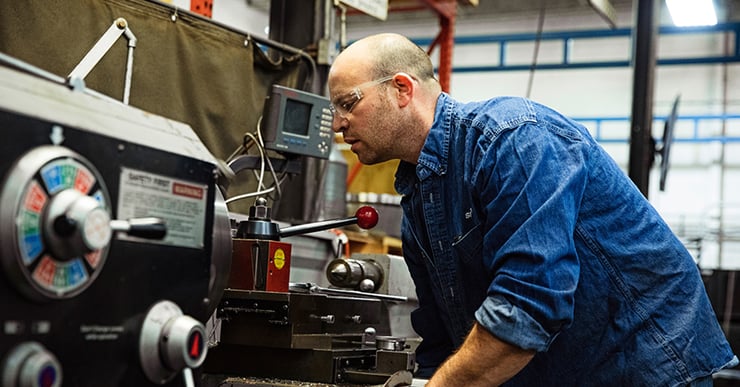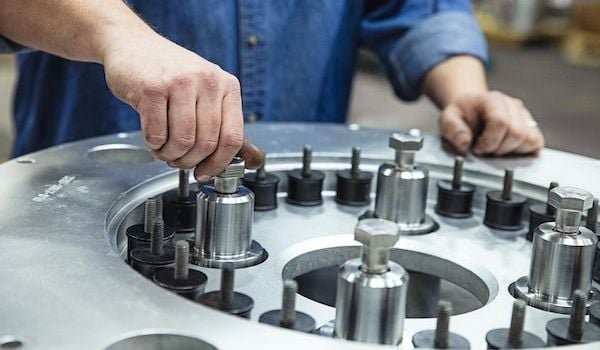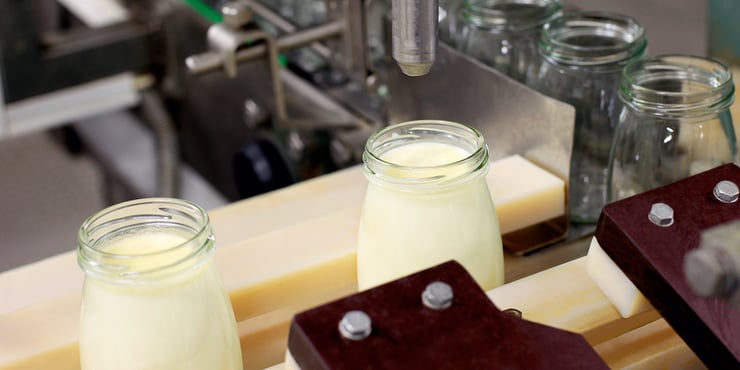Search Separators
How Repairing Centripetal Pumps Saved $15,000
Sometimes, something as simple as a plant visit can save a facility well over $15,000. Here’s how it happened.
All About the Separators Parts Department [Video]
Having the right replacement parts for your centrifuge equipment can be a real bottom-line saver. If you’ve ever been on the floor when a centrifuge breaks down, you know the mad scramble first hand. Sourcing centrifuge spare parts might not always be easy, but it is always essential. Here at Separators, our parts department’s primary goal is to get you the parts you need as quickly and efficiently as possible. But don’t just take my word for it. Watch this video to hear it from our team.
Introducing the New Separators
There’s nothing quite like a global pandemic to help you figure out what’s really important. Lucky for us, we were already working on just that. We were toiling behind the scenes, taking a deep dive into Separators Inc. as a company.
Asking questions like: What kind of people are we? What do we stand for? How do we serve our customers? As it turns out, we had a pretty great idea of who we were, and we’ve been doing a lot of things right, but our exterior was a little behind the times. It didn't show us as a company of experts and craftspeople. A company centered on your centrifuge.
Until now.
Cost of Maintenances vs. Cost of Downtime
Any problems with your centrifuge, no matter how minor, can halt your operations at a moment’s notice. And every minute your equipment isn’t working, you're losing time and money. Centrifuges do their job extraordinarily well, but only if you take the proper care to keep them running smoothly.
Check Out Our Indianapolis Shop Service Tour [Video]
While we may be best known for field service, where technicians travel to customer facilities and provide on-site service, that’s only part of our service capabilities. At our Indianapolis shop, centrifuge equipment comes to us. We take on the big, the bad, and the ugly. Watch the video to meet a few members of our team and get a tour of our shop.
[VIDEO] A Message in Response to COVID-19
As a company, one of our core values is customer service, offering a steady hand in a chaotic industry. This principle is why everything we do is based on our customers and the businesses that rely on us for their centrifuge needs, 24/7/365. It's also the reason I'm compelled to share the following message as we continue to adjust to the current state of the nation amidst the COVID-19 pandemic.
Take a look.
5 Ways to Become Better at Servicing Your Centrifuge
Centrifuge care and maintenance isn't something that comes naturally to most. Instead, it’s a skill that takes time to develop. I've been working with centrifuge equipment for decades, and I’ve worked with countless individuals who needed training on the basics of centrifuge service and maintenance because if you don’t know, you don’t know. So if you’re new to centrifuge equipment or if you’re just looking for a refresher, I've prepared the following list of ways anyone can increase their proficiency with this equipment.
Essential Services Keep America’s Supply Chain Moving
Millions of Americans are living a reality that looks a lot different than it did one or two months ago. Due to COVID-19, the ways people work, learn, exercise, socialize, and celebrate have all changed. And while we’ve seen many businesses temporarily close their doors, there are many businesses continuing to operate, sometimes at increased levels of demand. These businesses, deemed essential services, are critical to keeping the supply chain moving.
Pandemic Response from Separators: COVID-19
Editors note: This post was originally published on March 19, 2020 and has been updated to reflect the most accurate state of our operating details.
First, thank you. We value our clients, our team members, and the communities we serve, especially during these uncertain times.
Dairy Industry Days: Opportunities to Celebrate the Dairy Industry
Those of you who grew up in or around farming communities probably remember attending a celebration called Dairy Days. It was a festivity that focused on celebrating all things dairy. Depending on your town, the festivities were likely different, but I bet there were plenty of activities for the kids. Usual suspects could be:
.jpg?width=740&name=Sep-Pump-Blog-Image%20(1).jpg)
![All About the Separators Parts Department [Video]](https://www.separatorsinc.com/hs-fs/hubfs/Sep-Parts-Tour-Thumbnail.jpg?width=740&name=Sep-Parts-Tour-Thumbnail.jpg)


![Check Out Our Indianapolis Shop Service Tour [Video]](https://www.separatorsinc.com/hs-fs/hubfs/Blog/Sep-Shop-Tour-Thumbnail.jpg?width=740&name=Sep-Shop-Tour-Thumbnail.jpg)




